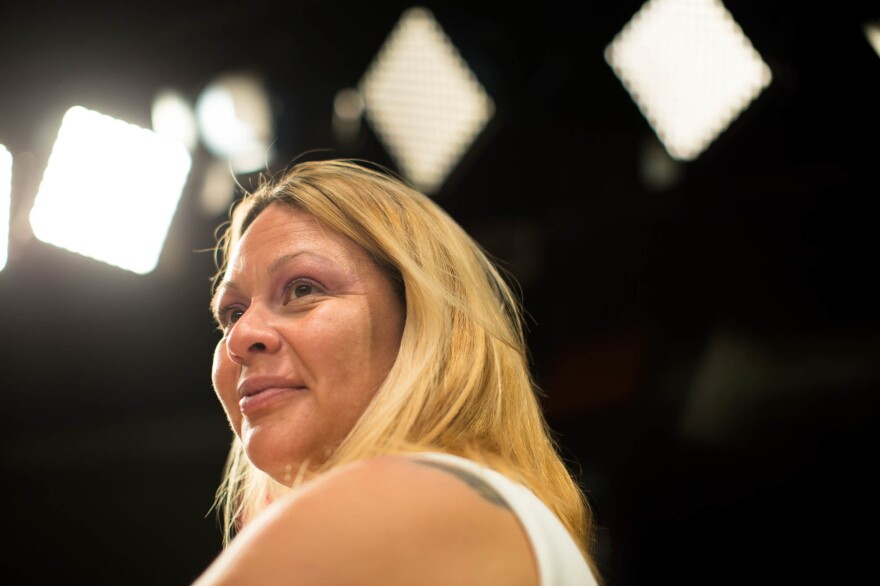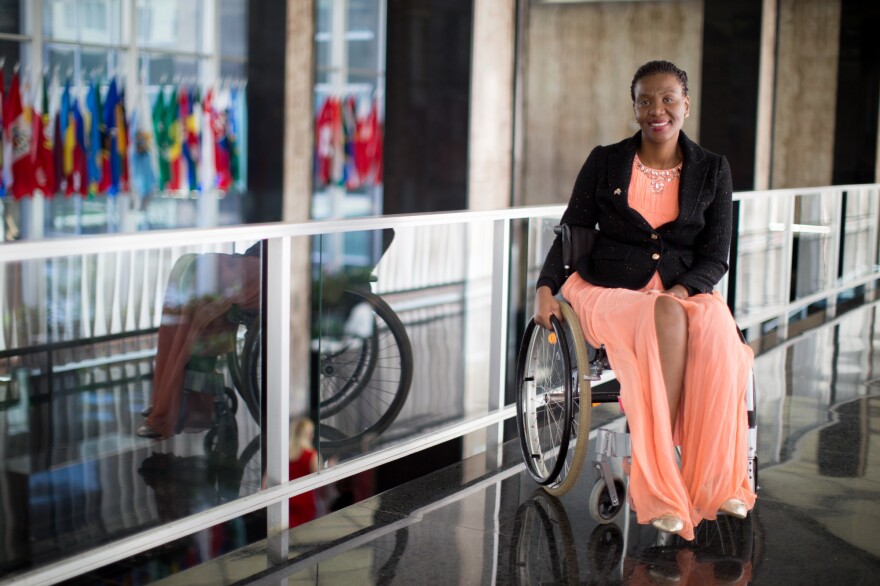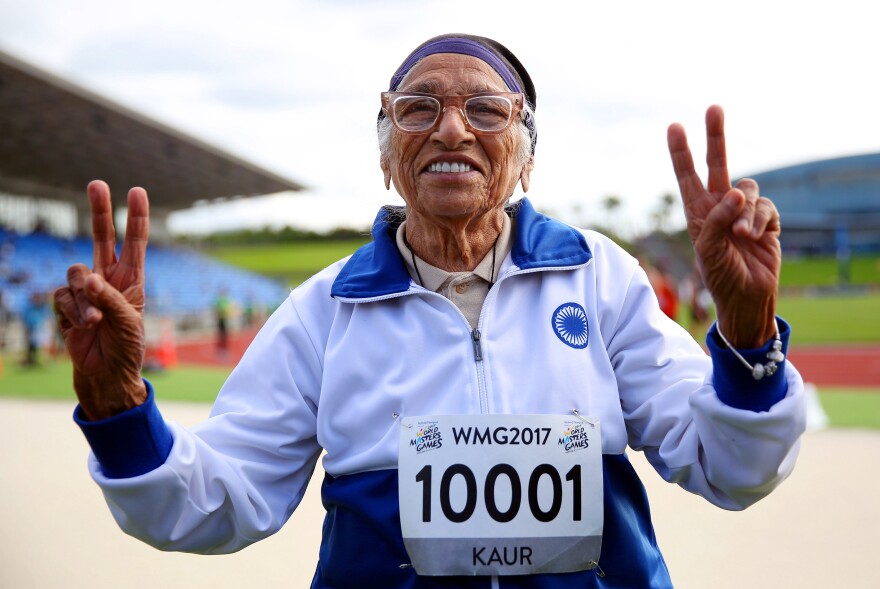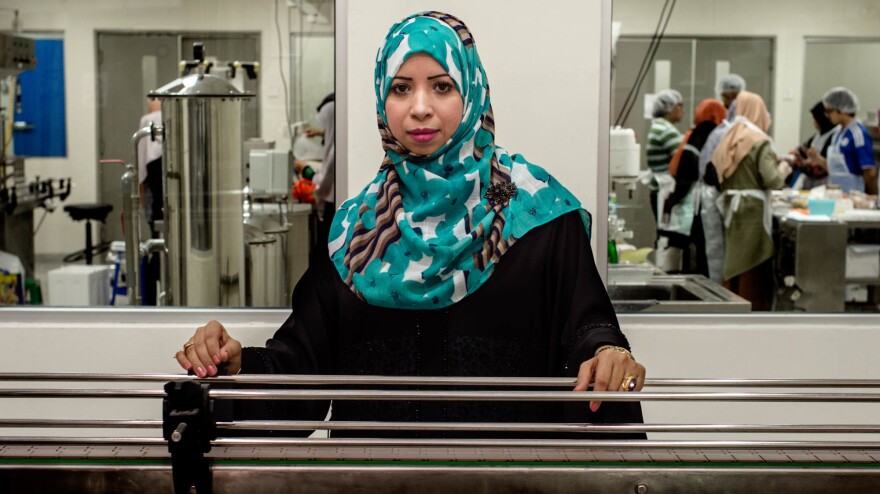Editor's note: This story was originally published in December and has been updated on March 8.
March 8 is International Women's Day — dedicated to celebrating the achievements of women in all arenas: social, economic, cultural, political and personal as well.
To mark the day, we've compiled some of the profiles we've done of truly remarkable women, from a 101-year-old runner from India to a Yemeni refugee who didn't let war stop her from being a scientist.
Argentina
Alika Kinan, the sex trafficking activist who sued her captors

When Kinan was a teenager in her native Argentina, a woman offered to buy her a plane ticket. Kinan thought was going to go on a great adventure. Instead, she was trafficked — stripped of her travel documents and taken to a brothel, where she was expected to have sex with 15 to 30 men a day. It was nearly 20 years before she was rescued. She went on to become the first Argentine woman to sue her traffickers and the state, winning a settlement of about $50,000. Her years of activism against trafficking were noted by the U.S. State Department in June: Kinan was one of eight activists honored at the unveiling of the 2017 Trafficking in Persons Report.
Botswana
Malebogo Malefhe, a domestic abuse survivor who is fighting gender-based violence

When people find out that Malefhe uses a wheelchair because she was shot by her boyfriend, the first question they ask is: "What did you do to him [to deserve it]?" Now Malefhe, who sustained eight bullets from her boyfriend of 10 years, wants to make sure that no woman who has faced domestic abuse is asked this question ever again. Since then, she has devoted herself to fighting gender-based violence in her native Botswana and teaching women that when men hurt them, it's not their fault. The U.S. State Department honored her with a 2017 International Women of Courage award.
India

A competitive runner, Kaur is a record holder in her age group for several categories and is now training for the Asia Pacific Masters Games in Malaysia in September. The centenarian is a role model for women and runners everywhere. The diminutive Kaur hasn't been a lifetime runner. She started running in 2009, when, on a whim, her son took her to the track. She enjoyed it — and she hasn't stopped since.
Kenya
Edna Kiplagat, a daughter of peasant farmers who won the Boston Marathon

Kiplagat was the fourth of 6 children. Her parents were peasant farmers. Last year, she took home $150,000 in prize money for winning the Boston Marathon. She's done this while raising not just her two biological kids but also the two children of her sister, Alice, who died of breast cancer in 2003. She also has adopted another child whose parents passed away.
"It's not hard," she says of balancing being a mother of five and a world-class athlete. "It's about organizing yourself and making sure that everything is done at the right time."
Nigeria
Zainabu Hamayaji, a Boko Haram survivor who pretended to be crazy to save her children

Ingenuity, inspiration, an elaborate ruse and a touch of madness. That is what it took for Hamayaji to protect her family from Boko Haram. The terror network in northeastern Nigeria has killed 20,000 people, abducted thousands and driven more than 2 million people from their homes during its eight-year insurgency. The 47-year-old mother of 10 — four biological and six orphaned children ranging from age 5 to 15 — feigned insanity to keep the insurgents away. "I was told Boko Haram was approaching and looking for young girls," she says. "Someone had tipped them off that I had a daughter of marriageable age, but I swore to myself that I would never allow them to wed or abduct my daughter." And they didn't want to mess with a "madwoman," says Hamayaji, whose husband had been killed earlier by the insurgents. She and her children now live in a camp for displaced persons in her hometown.
Yemen
Eqbal Dauqan, a refugee who didn't let war deter her from being a scientist

In March 2015, Dauqan's hometown of Taiz was pulled into Yemen's bloody civil war. Planes dropped bombs — and not just on military targets. "They were bombing my university!" says Dauqan, a biochemistry professor. "They killed some of my students." After the bombings began, she had to stop her research. The university shut down. And it wasn't safe for her to leave home. After months in hiding, Dauqan had an idea: Maybe her science could get her out of the war. She applied for a scholarship for refugees — and won it. Today, she works as a scientist, researcher and professor at Universiti Kebangsaan in Malaysia.
Zimbabwe
Chenai Mathabire, winner of a prize for her research on a faster tuberculosis test

There was a time when Mathabire read Vogue, watched beauty pageants on TV and fantasized about being a supermodel. Today she helps the sick and injured as a nurse and epidemiologist. This year, she received an International AIDS Society prize for showing that a faster tuberculosis test could be implemented at health centers in southeast Africa. Her goal is save the lives of HIV-positive patients who contract TB. "Nursing is often looked down upon and people just think you are there to be the maid of the doctor or do the dirty work. But teachers made me realize that nurses have a big role to play," she says.
Your Turn
Tell us about a woman who's making life better for other women — especially in the developing world.
It can be a woman you know personally, a woman you've read about in the news or an under-the-radar woman whose story you think the world needs to know. We're taking submissions until March 16.
Copyright 2021 NPR. To see more, visit https://www.npr.org.





